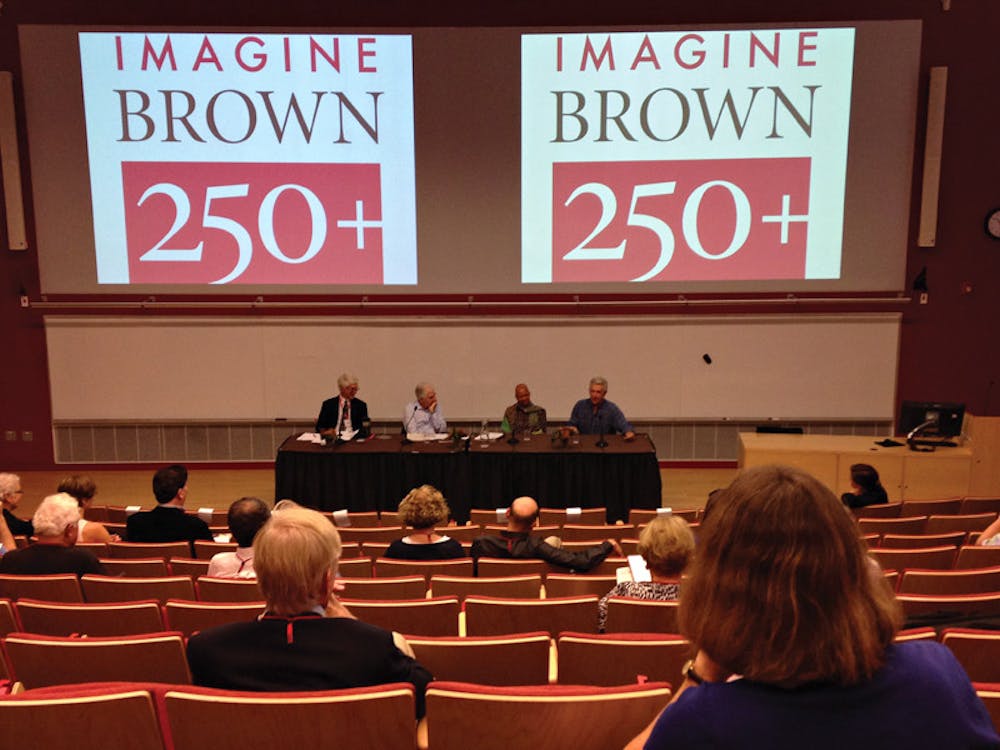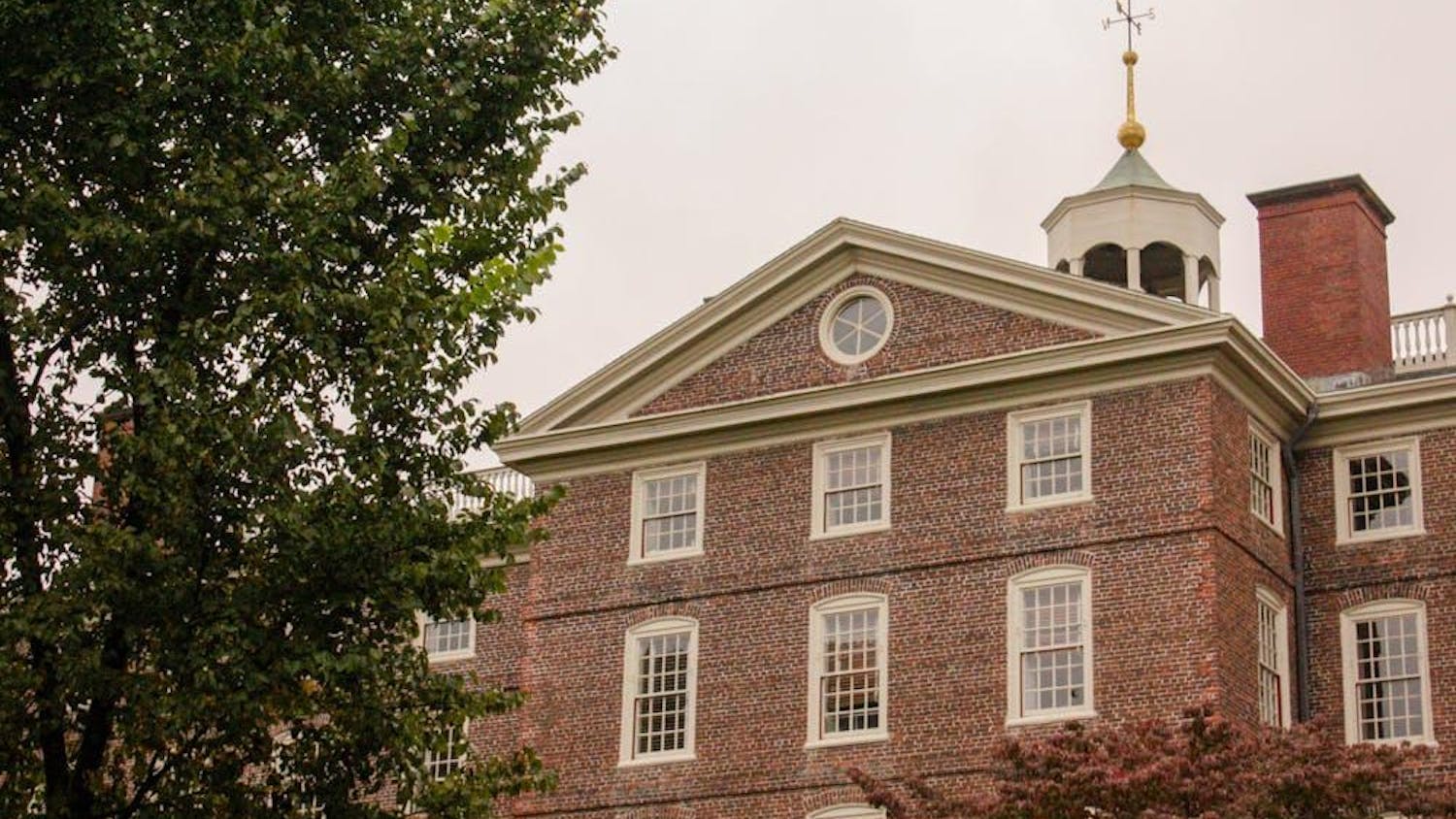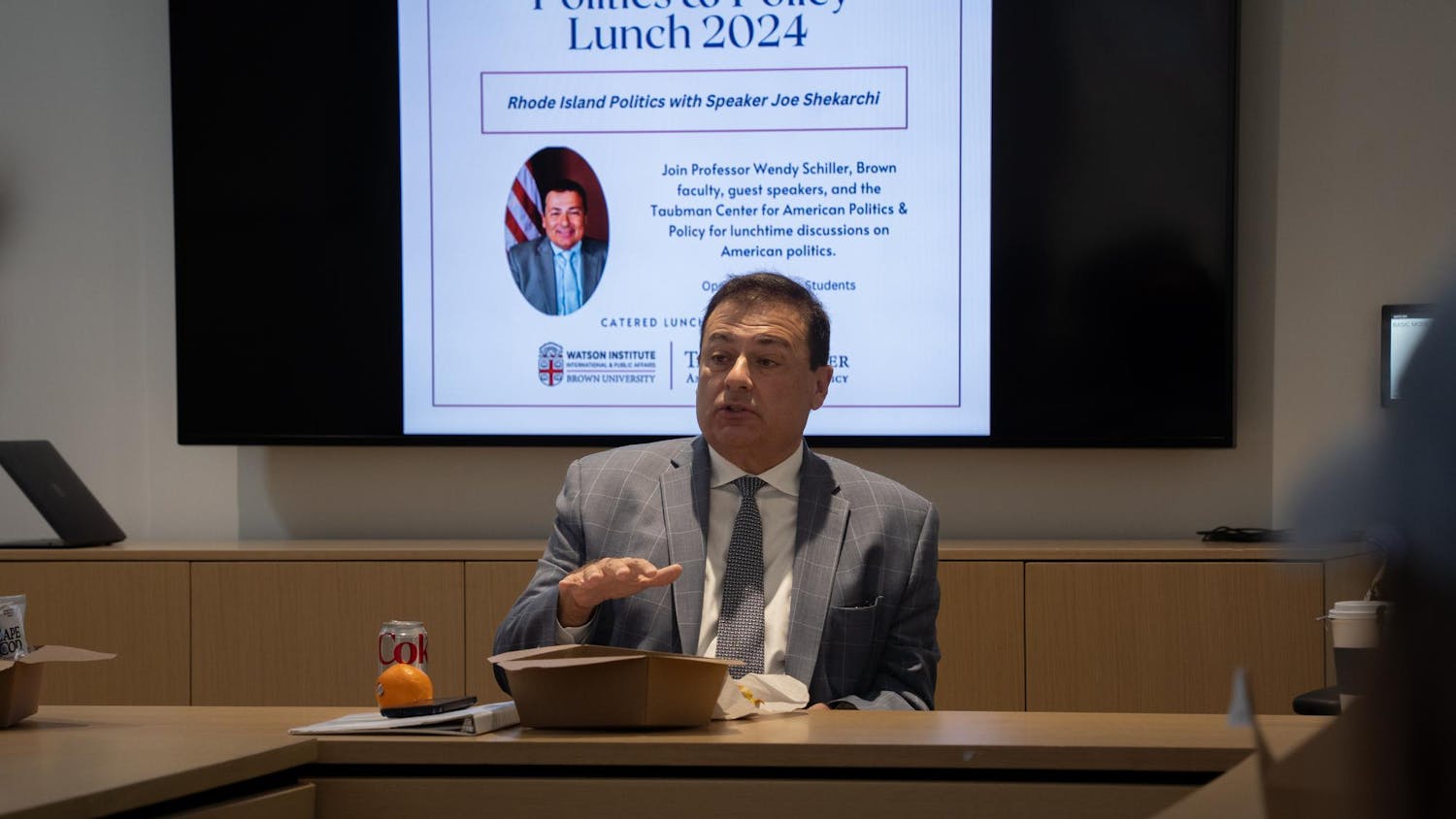Creativity “starts with the belief that you’re actually a creative person,” said Sheila Bridges ’86, author and founder of Sheila Bridges Design, at the beginning of a panel discussion Saturday morning.
The panel, called “Making ‘It’: Delving Into the Creative Process,” was one of the first in a series of forums commemorating Brown’s 250th anniversary during the fall celebration this weekend.
Bridges, Oren Jacoby ’77 P’17, an Academy Award-nominated documentary director at Storyville Films, and James Naughton ’67, a Tony Award-winning actor and musician, participated in the discussion about the creative process and their success in their fields.
Arnold Weinstein P’92, professor of comparative literature, moderated the panel.
“In my career, in the work I do, process is sort of everything,” Jacoby said.
“If I had to define what I do, it’s more like being a plumbing contractor — controlling a flow of information,” he added.
The panelists all agreed that creativity is essentially a “skill set.”
“You’re really picking (something) because it touches you deep in your consciousness,” Jacoby said. “And it touches a chord in generation after generation.”
“Creativity gives you a sense of your place in the world,” he said.
The panel quickly turned into a storytelling forum, with Bridges, Jacoby and Naughton relating experiences that have defined their careers.
Naughton told the audience that he originally intended to be pre-med. “That didn’t last a minute,” he joked, adding that he ended up concentrating in English but switched his focus to acting during the second half of his junior year.
“I needed to satisfy an arts requirement,” he said, adding that without the influence of Professor Emeritus of Theater Arts and Performance Studies James Barnhill, he would never have pursued acting.
“Talk about a professor having a profound impact,” Naughton said.
Jacoby received one of his big filmmaking jobs through a coincidence in a barber shop.
“I have a really great Italian barber,” Jacoby said. One morning after cutting Jacoby’s hair, the barber introduced him to a man sitting nearby. That man was a “hedge fund guy,” and after meeting Jacoby, he said, “That’s funny, I need a filmmaker.”
The man was interested in creating a documentary about Italian Jews during the Holocaust, and the resulting film, which Jacoby directed, is set to open at the Rome Film Festival in two weeks.
“What’s your barber’s number?” Naughton joked.
After the panelists spoke, an audience member asked them about working within constrictions “but still (creating) something new.”
The panelists agreed that finding funding for their projects is one of the hardest aspects of being an artist.
“You’re dealt the cards you’re with, and you try to do the best you can,” Jacoby said. “If something looks too good to be true, it probably is too good to be true.”
Another audience member asked about experiencing creative blocks.
“I think that’s pretty typical,” Bridges said.
“For myself, I always have to take a break from it. Sometimes (ideas) just don’t work. You have to know when to give it a rest,” she said.
Naughton told the story of author E.L. Doctorow, who, after having severe writer’s block, started describing the windows of the Victorian house he was staying in.
“The next thing he knew he was writing ‘Ragtime,’” Naughton said.
A final audience member asked, “When did it come to you that the decision you were making at the time was the right one?”
“I don’t know if you ever know,” Naughton replied.
“It’s about just making the commitment,” Bridges said. “You just have to do it, and then you maybe retrospectively convince yourself that it was the right thing.”
Naughton added, “And sometimes you’re like, ‘What was I thinking?’”

ADVERTISEMENT




